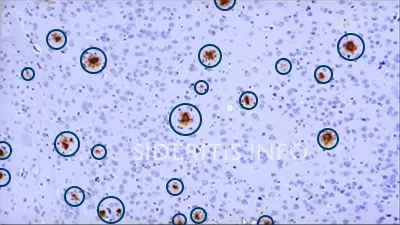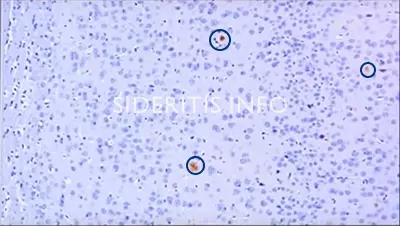5. Medical Plants and Alzheimer’s
All parts
- 1. What is a Dementia?
- 2. Types of Dementia, what is Alzheimer’s
- 3. Risk Factors Alzheimer’s
- 4. How can we treat Alzheimer’s
- 5. Medical Plants and Alzheimer’s ( You are here )
- 6. Early Treatment and Patient Replies
- 7. Treatment successes with plant extracts
In addition to the successful experiments with Greek mountain tea and St. John’s wort, Prof. Jens Pahnke examined other plant substances. The question was the focus, which drugs and substances can activate transport molecules, (see part 4), in the brain.
The following well-known medicinal plants were tested, among others:
- Humus lupulus (hops)
- Camelia sinsensis (green tea)
- Hypericum perforatum (St. John's wort)
- Gingko biloba
None of these plants, except St. John`s wort, gave promising results. The results of the gingko biloba known from advertising were particularly disappointing in relation to Alzheimer’s dementia.
Studies on gingko biloba
Gingko biloba has been said to help with Alzheimer’s. Several clinical studies, including one with more than 3000 patients, which was carried out in the period 2000-2008, have been negative in this regard.
Gingko biloba is therefore not a suitable plant, (or an extract thereof), to treat Alzheimer’s. Gingko biloba is neither effective in preventing new disease nor disease progression. Even before these clinical studies, the well-known drug Tebonin was able to achieve little or no effect in the mouse model.
In part 6 of the lecture, Prof. Pahnke reports in detail on the research results on Greek mountain tea and St. John’s wort. In part 7 he explains the treatment successes achieved through the combination of plant extracts from St. John’s wort and Greek mountain tea.
Greek mountain tea extract for Alzheimer's
In the search for suitable plants, they came across Sideritis spp., also known as Greek verbena or Greek mountain tea. The tea grows in the eastern Mediterranean and is called differently depending on the region.
There are many different subtypes of this plant, growing at different heights in different locations. The best results in Alzheimer’s dementia were achieved with ethanolic extracts of the subspecies Sideritis scardica.
In addition to a reduced number of plaques, (-80%), the normalization of the number of nerve cells and an improvement in learning ability could be demonstrated. The improvement in cognitive abilities becomes clear using the mouse model.
Mice are being studied that have developed Alzheimer’s and lost their ability to orientate themselves. After treatment with Sideritis scardica, the mice were able to regain their ability to orient themselves after just 50 days. A significant improvement in cognitive abilities could also be measured in healthy old mice, (without Alzheimer’s).
Due to the good results, the treatment was recommended for patients with memory disorders. Patients reported back that memory function stabilized and cognitive abilities improved.
St. John's wort extract for Alzheimer's
Various preparations with St. John’s wort extracts already exist for the treatment of mild and moderately severe depression. Applications in Alzheimer’s mice have also shown that specific extracts, (80% ethanolic extracts), work very well in Alzheimer’s disease in mice.
A specific St. John’s wort extract activates the transport molecules in the brain to remove plaque deposits. The application in patients led to an improvement in the dementia symptoms, the ability to speak and the day-night-rhythm.
The study on the mouse model in the laboratory shows a significant reduction in the amount of Alzheimer’s peptides (β-amyloid) in the brain. As a result, the number of nerve cells in the brain increases, Professor Pahnke speaks of a rescue of the nerve cells.
A significant improvement in learning ability was demonstrated. The best results were obtained with an 80% extract. Professor Pahnke emphasizes that the 60% extract found in many preparations has little to no effect.



